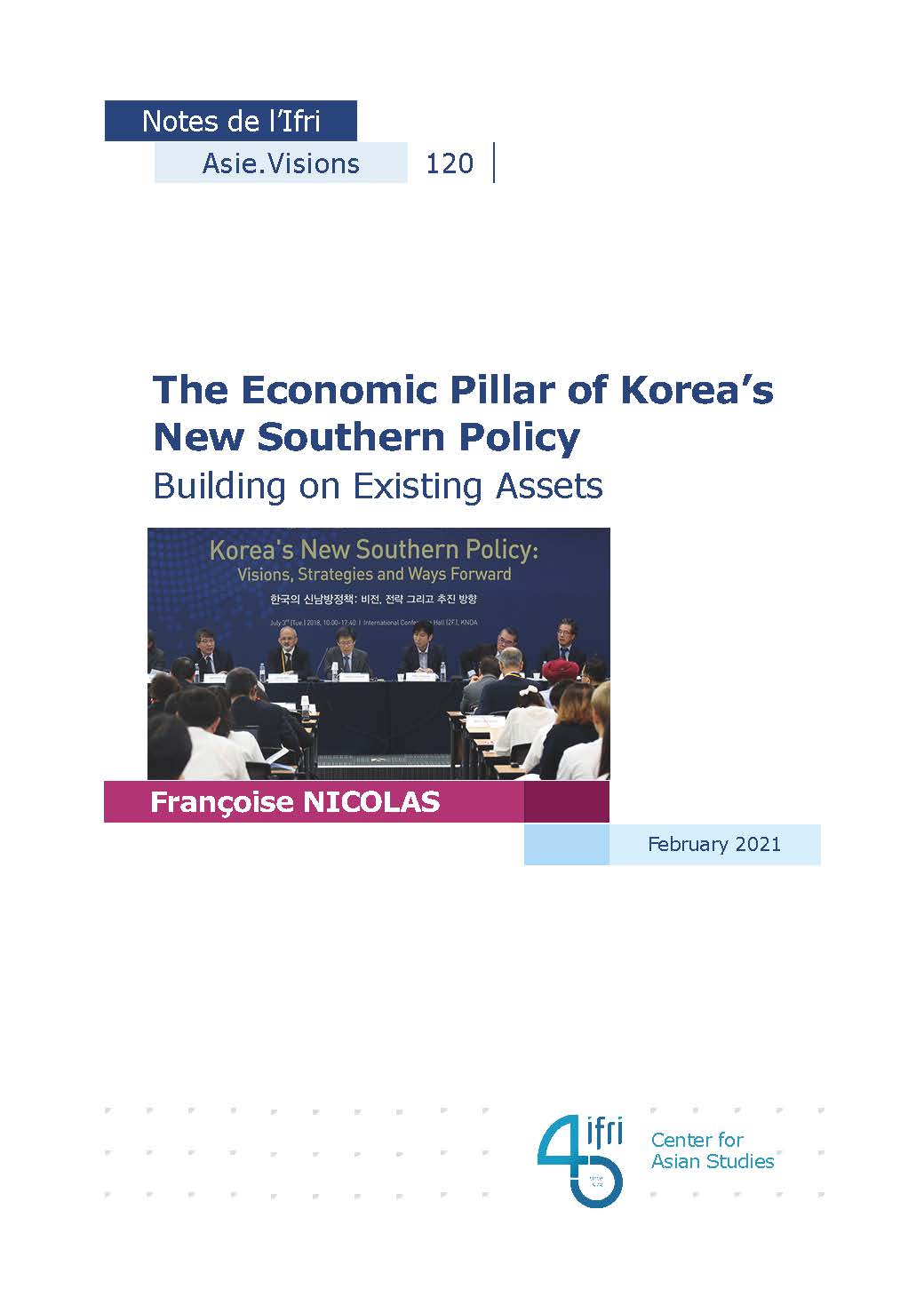The Economic Pillar of Korea’s New Southern Policy: Building on Existing Assets

Diversification is a key tenet of South Korea’s New Southern Policy (NSP). In the economic sphere, however, the need for diversification is apparently less pressing as, unlike what is observed in the diplomatic and security domains, Korea’s economic partnerships are less unbalanced and are not (or not as clearly) polarized on the big Four (China, Japan, the United States, and Russia).
Although Korea’s economic relations with its “South” – Association of Southeast Asian Nations (ASEAN) and India – seem to be relatively strong already, there is still scope for further development. First, heavy Korean economic involvement in ASEAN is heavily skewed towards Vietnam. Secondly, India remains a marginal economic partner for Korea and may be deemed the weak pillar in its economic strategy so far. Thirdly, except through Official Development Assistance (ODA), the role of the government has remained limited so far in supporting the expansion of economic links between Korea and ASEAN, and to a lesser extent India.
The key question is to determine what the added value of the NSP can be beyond existing private sector-based economic relations. Through the NSP the Korean government provides financial support to facilitate the expansion of private companies’ activities in Korea’s “South”, in particular in sectors in which they would not necessarily engage on their own. The diversification objective of the NSP’s economic pillar is thus not only geographical but also sectoral. The focus is placed on infrastructure development projects in ASEAN and India, and more specifically on niche activities such as smart-city projects.
In addition to such financial support, the Korean government has opted for indirect support through the negotiation and implementation of various trading arrangements – Free Trade Agreements (FTAs) or Comprehensive Economic Partnership Agreements (CEPAs) – including the recently concluded Regional Comprehensive Economic Partnership (RCEP).
The chance of success of the NSP can be deemed relatively high as it does not start from scratch and as Korean private companies’ and government’s interests dovetail quite nicely. Moreover, Korea’s focus on infrastructure is aligned with the recipient countries’ interests, in particular ASEAN’s. However, a major weakness of the strategy is the absence of a powerful and convincing narrative to go with it, which makes Korea’s endeavor less attractive for its potential partners. But, of course, this weakness goes beyond the economic dimension of the NSP and would need to be addressed at a more general level.
Download the full analysis
This page contains only a summary of our work. If you would like to have access to all the information from our research on the subject, you can download the full version in PDF format.
The Economic Pillar of Korea’s New Southern Policy: Building on Existing Assets
Related centers and programs
Discover our other research centers and programsFind out more
Discover all our analyses
RAMSES 2024. A World to Be Remade
For its 42nd edition, RAMSES 2024 identifies three major challenges for 2024.
France and the Philippines should anchor their maritime partnership
With shared interests in promoting international law and sustainable development, France and the Philippines should strengthen their maritime cooperation in the Indo-Pacific. Through bilateral agreements, expanded joint exercises and the exchange of best practices, both nations can enhance maritime domain awareness, counter security threats and develop blue economy initiatives. This deeper collaboration would reinforce stability and environmental stewardship across the region.

The China-led AIIB, a geopolitical tool?
The establishment of the Asian Infrastructure Investment Bank (AIIB) in 2016, on a Chinese initiative, constituted an attempt to bridge the gap in infrastructure financing in Asia. However, it was also perceived in the West as a potential vehicle for China’s geostrategic agendas, fueling the suspicion that the institution might compete rather than align with existing multilateral development banks (MDBs) and impose its own standards.
Jammu and Kashmir in the Aftermath of August 2019
The abrogation of Article 370, which granted special status to the state of Jammu and Kashmir (J&K), has been on the agenda of the Bharatiya Janata Party (BJP) for many decades.








